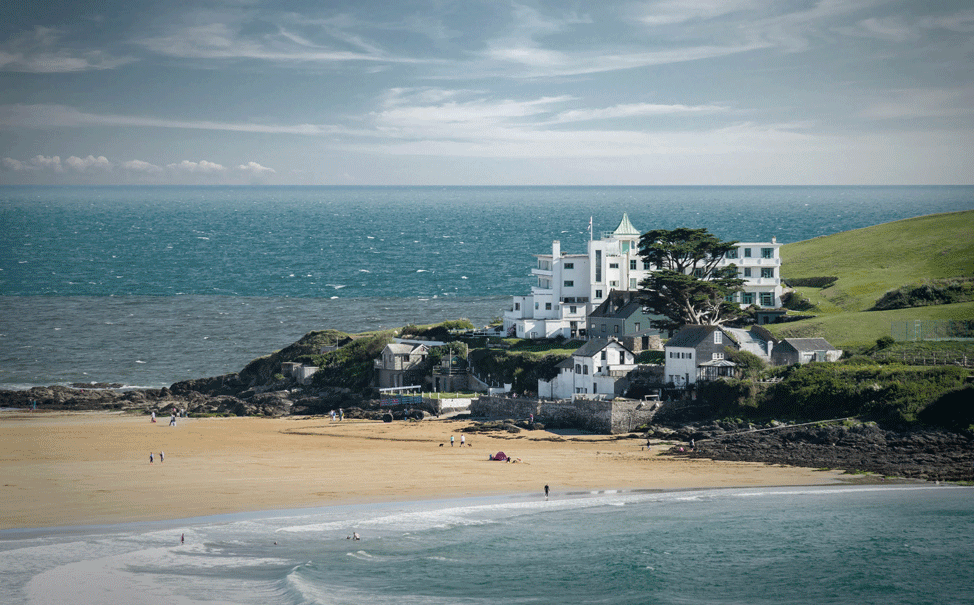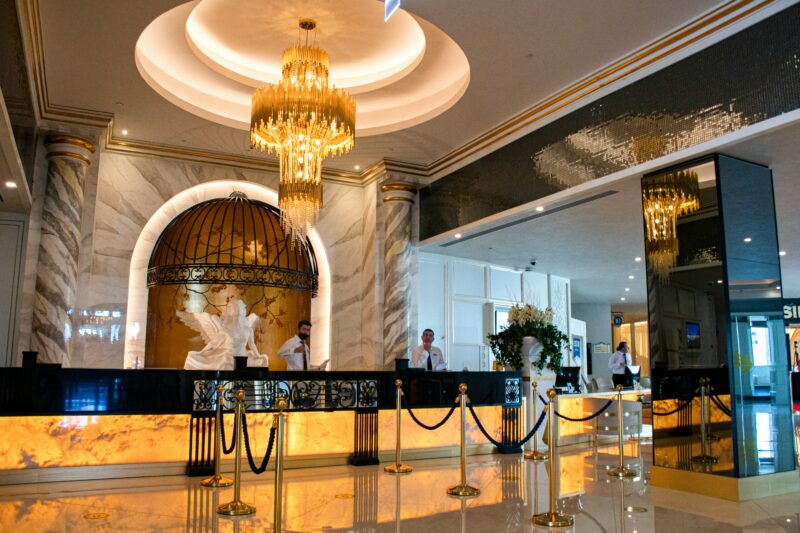
Reading Time: 3 minutes
Giles Fuchs, co-owner of Burgh Island Hotel in Devon, shares how investor appetite is extending to smaller, independent properties and his outlook for the future.
Hotels are leading the charge in the UK commercial property market’s revival. Investment in the UK hotel sector soared 28 per cent year-on-year in Q3 2025 to around £1.04 billion, according to Savills. It’s one of the strongest performances in the commercial real estate sector, outpacing offices, industrial assets, and retail.
It is not big portfolio takeovers that have dominated. The smart money’s going boutique. Despite continued cost pressures and staffing issues, boutique hotels – small, character-driven, single-asset properties have emerged as the standout stars. These bespoke, high-character hotels offer clearer cashflows, greater liquidity, and a level of control that diversified portfolios can’t match.
More than 90 per cent of Q3 transactions were single-asset deals, as high-net-worth individuals and private equity buyers chase tangible assets they can directly manage. Investors are drawn to their strong cashflows, inflation-hedged income and loyal guest bases. These properties are proving both resilient and rewarding in a cautious investment climate.
London and the South West power ahead
Unsurprisingly, London remains the hotel market’s powerhouse. The capital saw £697 million in transactions, up 42 per cent on the same period last year, thanks to robust occupancy rates and high-end demand. But the real eye-catcher came from the South West, where deal volumes soared 360 per cent to £180 million, fuelled by the enduring appeal of staycations and premium coastal getaways.
The West Country’s mix of heritage, beaches and boutique appeal is proving irresistible to both guests and investors. Easing inflation and early signs of falling interest rates in Q3 gave the market fresh confidence, with buyers looking for real assets that can deliver both returns and stability.
Experience is everything
What sets boutique hotels apart is their authentic, locally inspired experience. From unique design and personalised service to their deep sense of place, these properties appeal to travellers who want something memorable rather than standardised. That edge allows them to command premium room rates and build loyal repeat business.
The result? Investors are taking notice. Domestic buyers made up 45 per cent of acquisitions this year, reflecting renewed local confidence. But overseas capital is flooding in too — international investment surged tenfold year-on-year, led by asset managers and pension funds looking for value-add opportunities in a high-inflation world.
Resilience, not distress
Despite the economic backdrop, Q3 2025 saw few distressed hotel sales. Occupancy rates are now close to pre-pandemic levels, and average daily rates have edged higher, helping owners maintain steady cashflows. With limited new hotel supply in many regional markets, competition remains manageable and valuations firm.
Creativity drives margins
Smart operators are using technology and innovation to keep growth on track. Dynamic pricing, automation and data-driven upselling are helping boost revenues, while hybrid operating models, where lobbies double as workspaces by day and social venues by night, are adding new income streams.
These inventive approaches help offset rising wages and employment taxes, showing that well-run hotels can still grow even in a tight labour market.
Rates reform to boost boutique sector
There’s also a policy boost on the horizon. From April 2026, the UK government’s overhaul of business rates will replace the current two-tier system with five bands based on property use and rateable value. The change is expected to cut costs for many smaller boutique and heritage hotels, further improving margins and valuations.
Outlook: Safe haven with upside
The UK hotel sector’s strong 2025 performance underlines its resilience and appeal within the wider property market. While other sectors – retail, residential, industrial, have grown through structural shifts, hotels are attracting capital for a different reason: experience-led growth and stable, inflation-proof income.
Investors chasing tangible, income-producing assets see hotels as a safe haven with upside. With steady travel demand, controlled supply, and smarter management driving performance, analysts expect these trends to continue into 2026. The combination of domestic confidence, global investor interest and creative reinvention makes the hotel market, particularly the boutique segment one of the brightest, most dynamic corners of UK real estate.








